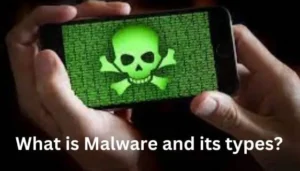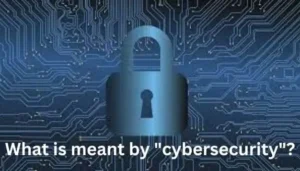
|
Getting your Trinity Audio player ready... |
Due to a cyberattack that affected its central bank, Lesotho’s interbank and international payments are no longer processed.
MyBroadband was informed by a trustworthy industry source—who wished to remain anonymous—that all of their payments from South Africa that were routed through Lesotho were unavailable.
The Central Bank of Lesotho declared on Monday, December 11, 2023, that it had suffered a “cyber-security incident.”
The nature of the attack was not described in detail.
The Bank stated in a statement released on Tuesday that it “has investigated the matter and is working around the clock to restore the systems.”
“The Bank wants to reassure everyone that it has not experienced any losses, either financial or otherwise.”
The bank claimed that in order to stop additional hacking, it had suspended a few of its systems.
As a result, it said, “some payments may be delayed while the Bank works to restore normalcy to the systems.”
The central bank acknowledged the National Payments System outage in a follow-up statement on Wednesday.
“This has prevented all local banks in the nation from honoring interbank transactions.”
It clarified that these are the kinds of payments and exchanges that typically take place between banks.
The statement read, “The country will be notified as soon as the system is back in operation. Technical teams from the Central Bank of Lesotho as the Regulator and the banking industry as a whole are working tirelessly to resolve the issue.”
“In order to provide alternate methods for facilitating payments and transactions between all banks, the CBL and BAL Members have now agreed to implement business continuity processes and measures.”
Cyberattack Targets Central Bank of Lesotho: A Global Alert
The Central Bank of Lesotho has reported a cyber security incident, the specifics of which have not yet been disclosed. This is a noteworthy development. This breach may have jeopardized the country’s economic stability, a worry that has been expressed all over the world.
Globally speaking, cyber security incidents transcend all national borders. Massive cyberattacks targeted Ukrainian telecom provider Kyivstar, causing major disruptions to internet and mobile communication services. The CEO of Kyivstar has accused state hackers from Russia, implying that Russia has made a sizable investment in cyberattacks that are directed at Ukraine’s vital infrastructure.
In the meantime, the UK parliamentary committee looking into ransomware threats has argued for mandatory incident reporting and suggested taking a more aggressive approach against threat actors. This is in response to the growing concern about cyber security around the world, particularly in light of incidents like the Uber breach case. The CEO of Ukraine Friends, Joe Sullivan, has called attention to the case’s cybersecurity lessons in particular.
Lazarus Group, a North Korean hacker group, is one of the many groups that use Log4Shell to target the manufacturing and agricultural industries. Questions concerning X Corp’s possible involvement in the incident have been raised by this incident as well as the appearance of “X Corp” in the Lesotho Bank breach.
Legislation and enforcement change in tandem with the ongoing evolution of cyber threats. The Artificial Intelligence Regulation will be phased in by the European Union. Conversely, the government of the United Kingdom has imposed sanctions on 14 individuals and organizations for their illicit recruitment of victims of human trafficking in online fraud schemes.
A significant individual who was allegedly involved in the money laundering component of the Kelvin Security hacking operation was detained by the Spanish national police. A hospital chain with locations in Kentucky is alerting millions of people to a possible breach of data resulting from an attack in May.
It is anticipated that deepfake technology will have a major impact on more recent authentication methods due to the rapid advancement of technology. Concerns regarding Islamic banking’s susceptibility to cybercrime are raised by this, underscoring the necessity of sophisticated cybersecurity measures to safeguard client and staff data. The “Zero Trust Approach” and the use of blockchain, AI, and machine learning as cutting-edge defenses against outside threats are the main points of emphasis.
Finally, the recent cyberattack on the Central Bank of Lesotho highlights the increasing danger of cybercrime and the pressing need for strong security protocols, not only in Lesotho but throughout the world. It acts as a sobering reminder of how vulnerable our globalized world is and how crucial it is to put cutting-edge cybersecurity measures into place.







